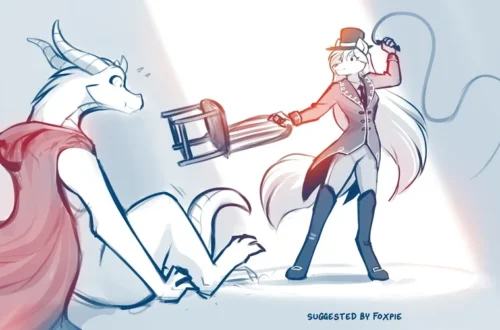1. The Origins of “Traukinių Žymėjimas” – Irvine Welsh’s Groundbreaking Novel
“Traukinių žymėjimas” (original title: Trainspotting) is the debut novel of Scottish writer Irvine Welsh, first published in 1993. The book immediately gained attention for its raw portrayal of heroin addiction, urban despair, and the struggles of a disenfranchised generation in Edinburgh, Scotland. Written in a mix of Scottish dialect and English, the novel challenged traditional literary norms with its fragmented narrative and gritty realism.
The story follows Mark Renton and his circle of friends—Sick Boy, Spud, and Begbie—as they navigate a life consumed by drugs, poverty, violence, and fleeting moments of joy. Far from glorifying heroin use, the novel exposes its devastating consequences while also capturing the dark humor and camaraderie of those trapped in addiction.
When translated into other languages, including Lithuanian in 2008, the novel continued to resonate because of its universal themes: escapism, rebellion, and the search for identity in a harsh society. Its provocative content and unique narrative voice cemented Welsh’s reputation as a leading voice of the postmodern literary movement.
2. From Page to Screen: Danny Boyle’s Iconic Film Adaptation
In 1996, director Danny Boyle adapted Welsh’s novel into the now legendary film Trainspotting. The film became an instant cult classic, praised for its kinetic energy, stylistic visuals, and unforgettable soundtrack.
The cast featured future stars like Ewan McGregor (Renton), Jonny Lee Miller (Sick Boy), Robert Carlyle (Begbie), Ewen Bremner (Spud), and Kelly Macdonald (Diane). Irvine Welsh himself even made a cameo as a drug dealer.
The movie brought to life the chaotic energy of Edinburgh’s drug scene while maintaining a sharp balance between humor and tragedy. Audiences were captivated by the film’s iconic sequences, such as Renton diving into the “worst toilet in Scotland” and the unforgettable withdrawal hallucinations.
Critics praised the film’s daring direction and stylized storytelling. It won a BAFTA Award for Best Adapted Screenplay and was nominated for an Academy Award. The British Film Institute ranked it among the top 10 British films of all time, while Total Film placed it as the fourth best UK movie ever made.
3. Trainspotting 2: A Nostalgic Return Two Decades Later
Over 20 years later, in 2017, Danny Boyle reunited the original cast for “T2: Trainspotting”. The sequel was loosely based on Irvine Welsh’s follow-up novel Porno, though it also incorporated new storylines about aging, lost time, and regret.
Renton, Sick Boy, Spud, and Begbie return as middle-aged men grappling with their past choices and unfulfilled dreams. Unlike the original film’s chaotic energy, T2 takes on a more reflective tone, exploring nostalgia, redemption, and betrayal.
Though it received mixed reviews, fans appreciated the chance to revisit beloved characters and themes. T2 was showcased at the Berlin International Film Festival, and critics noted how it explored the emotional impact of growing older while still clinging to the shadows of youth.
4. Behind-the-Scenes Facts That Made “Trainspotting” Legendary
Part of what made Trainspotting unforgettable were the fascinating details behind its production:
-
Ewan McGregor lost significant weight and researched heroin use extensively to authentically portray Renton.
-
The toilet scene—where Renton dives into a filthy bathroom—became one of cinema’s most infamous sequences, blending surrealism with shock value.
-
The movie was filmed in just 35 days, showcasing Danny Boyle’s efficient and energetic directing style.
-
Its soundtrack became a cultural phenomenon, featuring tracks like Iggy Pop – Lust for Life, Underworld – Born Slippy (Nuxx), and Lou Reed – Perfect Day. The music not only defined the film but also symbolized the spirit of the 1990s.
These elements, combined with its rebellious attitude, ensured Trainspotting wasn’t just a movie but a cultural movement.
5. Cultural Impact and Controversy
Upon its release, Trainspotting sparked intense debates. Many praised it for shedding light on drug addiction, working-class struggles, and urban alienation. Others criticized it, claiming the film glamorized heroin use.
In the United States, even Senator Bob Dole condemned the film for allegedly promoting drug culture—despite admitting he had never actually watched it. This controversy only amplified its popularity, making it a must-see for rebellious youth.
Over time, however, critics and audiences recognized that Trainspotting did not glorify drugs. Instead, it depicted addiction’s brutal reality while exploring deeper questions about friendship, survival, and the meaning of choice.
The film and novel influenced countless works of art, music, and cinema, and continue to be studied in universities, film schools, and literary courses around the world.
6. Why “Traukinių Žymėjimas” Remains Relevant Today
Decades after its release, Trainspotting remains just as relevant. Why?
-
Universal Themes: The struggles with identity, belonging, and self-destruction transcend time and geography.
-
Authentic Characters: Renton, Sick Boy, Spud, and Begbie embody flawed humanity—making them relatable even today.
-
Stylistic Innovation: Danny Boyle’s direction and Welsh’s raw writing style remain groundbreaking for literature and film.
-
Cultural Soundtrack: The music of Trainspotting is still celebrated as one of the greatest movie soundtracks ever.
-
Generational Reflection: For younger audiences, it captures the chaos of youth. For older fans, T2 offers a bittersweet reflection on aging and the passage of time.
In essence, Traukinių žymėjimas is more than a story about drugs. It’s about life, choices, regrets, and the constant search for meaning in a world that often feels meaningless.
Conclusion
“Traukinių žymėjimas” (Trainspotting) is not just a book or a movie—it’s a cultural phenomenon. From Irvine Welsh’s groundbreaking novel to Danny Boyle’s iconic film and its 2017 sequel, the story continues to captivate audiences worldwide. Its raw portrayal of addiction, friendship, and despair has secured its place in literary and cinematic history.
Whether you read the book, watch the original film, or revisit T2, one thing is clear: Trainspotting isn’t just about heroin—it’s about life’s darkest truths and the fragile hope that keeps us moving forward.





